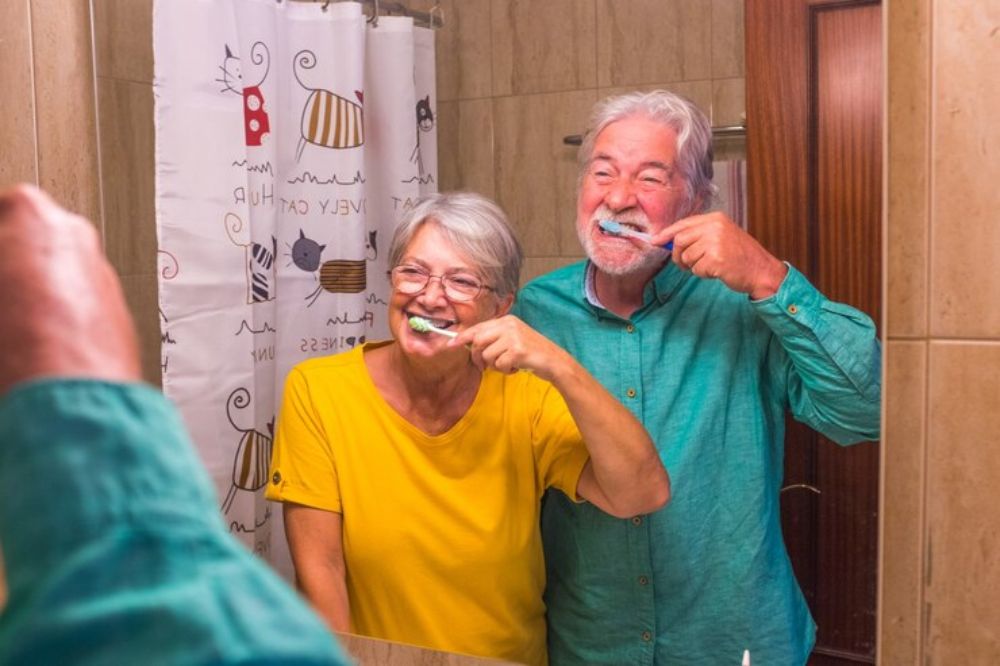As we get older, our bodies age, and so do our teeth. However, most individuals retain the same oral habits throughout their lives, which can contribute to dental issues. It’s easy to assume what worked in your teens will work in your 50s. But that is not always true. Dental requirements change over time, and your schedule should adapt.
From young adulthood to old age, modifying oral care can preclude severe complications. Whether switching toothpaste, controlling dry mouth, or going for routine dental checkups in Malton, knowledge of what and when makes the difference.
Why Does Dental Care Need to Change Over Time?
Your gums and teeth encounter various problems at every phase of life. In your 20s and 30s, it could be wisdom teeth or cavities. In your 40s and 50s, gum problems and sensitivity are more frequent. Seniors tend to have dry mouth, receding gums, or missing teeth. That is where age-specific dental care comes into play.
Different ages require different care. What makes your teeth strong as a teenager might not keep you safe when you’re an adult. Changing your oral routine is the key to maintaining a healthy, strong smile through every step of the way.
What Should You Pay Attention To in Your 20s and 30s?
During early adulthood, lifestyle choices affect oral health. Smoking, poor diet, and stress can lead to cavities or gum problems. It’s time to:
- Brush with fluoride toothpaste two times a day
- Floss one time daily
- Steer clear of sodas
- Make routine dental appointments
This is when wisdom tooth problems may develop, too. Seeing a dentist near you for regular exams helps catch issues early.
What Changes in Your 40s and 50s?
In middle age, the risk of gum disease increases. Hormonal changes, medications, or chronic conditions like diabetes may also affect oral health. To adapt, consider:
- Switching to toothpaste for sensitivity
- Using an antibacterial mouthwash
- Getting screened for gum disease
- Managing conditions that affect your mouth
Visiting a dentist in Malton at least twice a year ensures any changes in your mouth are addressed early.
What Dental Issues Are Common in Seniors?
Older adults may experience dry mouth, tooth loss, or shifting teeth. These changes are part of natural aging or side effects of medications. Tips to maintain oral health include:
- Drinking water often to fight dry mouth
- Using a soft-bristle toothbrush
- Considering dental implants or dentures if teeth are missing
- Using fluoride products to strengthen enamel
At this stage, changing dental needs must be handled with care. Regular visits to your dentist are important, even if you have no teeth, since oral cancer checks and gum monitoring remain critical.
How to Maintain Oral Health Through Life?
No matter your age, strong daily habits are the foundation of good oral health. Some lifelong tips include:
- Avoid tobacco in all forms
- Limit alcohol and sugary snacks
- Brush for two minutes, twice a day
- Replace your toothbrush every three months
- Never skip your dental checkups
Adapting your routine as you age doesn’t mean starting over. It means making small changes that match your stage of life.
Following proper oral health through life stages leads to fewer problems down the road and can even improve your overall health.
Is It Ever Too Late to Improve Oral Health?
No, it’s never too late to start. If you’ve neglected dental care in the past, making changes now still helps. Whether you’re 25 or 75, taking the right steps can prevent further damage and even improve your smile. If you’re unsure where to begin, your local dentist can guide you.
Remember, taking care of your teeth today sets you up for a healthier tomorrow. Each stage of life brings different challenges, but also new chances to protect your smile.
Final Thoughts
Keeping a healthy smile is possible at every age, as long as you keep adjusting your routine. Your teeth will thank you when you give them what they need at each stage.
Healthy Habits For Every Age Group
Whether you’re entering adulthood or enjoying your retirement years, personalized dental care matters. For trusted support and personalized attention, book a consultation today with Brandon Gate Dental Care.

